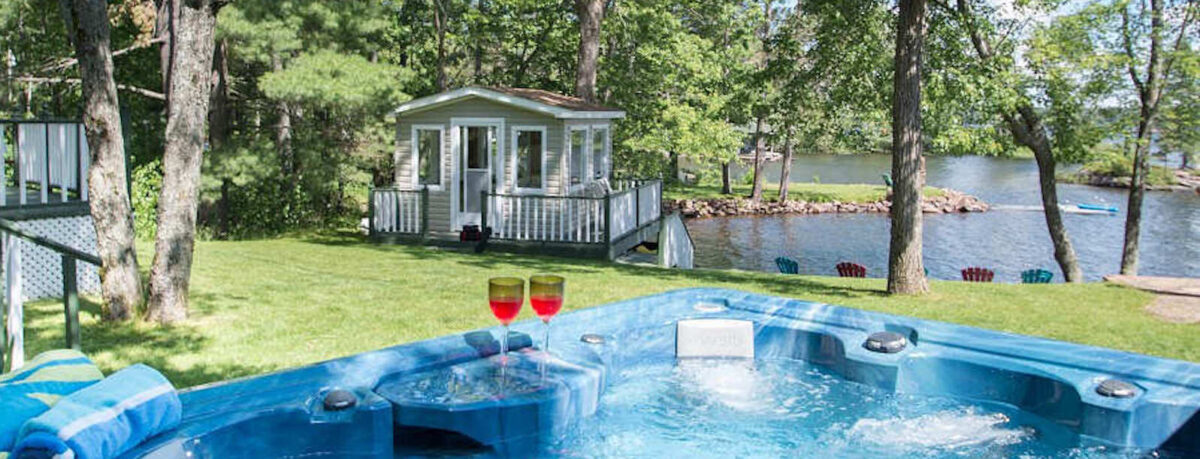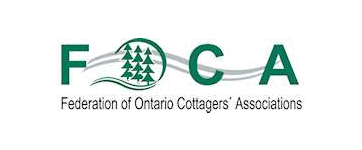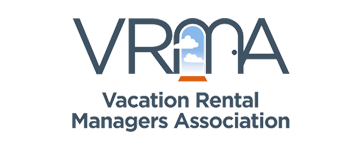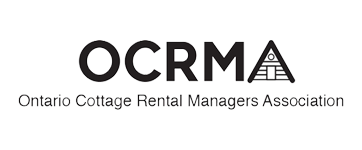
The past year has seen Ontario cottage prices reach unprecedented levels; bidding wars; a lot of very happy sellers, and disappointed buyers who failed to secure their dream vacation homes.
In some cases, it also resulted in purchases that with more time, and significantly more research, would have been passed over. Some properties were bought with more impulse than thought and now the high demand for summer rentals has faded, they are sitting in a hotbed of competition and struggling to keep rental rates up and costs down.
As the market potentially cools over the fall and winter, and if you haven’t yet found your lakefront spot, or are just starting from scratch, here’s a few key things to reflect upon. Spending time doubling down on motivation and goals, and being pragmatic about potential income could save you from a costly mistake and years of regret.
There is a lot to consider so we’ve broken it down to the key areas
The current Ontario rental market
How much will you want to use it?
Joining the travel & tourism business
Management – cleaning & maintenance
Rental management – DIY or agency?
Return on investment – incomve vs costs
The Current Ontario Rental Market
Ontario has always had a buoyant market for summer rentals, and demand in the past two years has been frenzied. During the Covid-induced demand period, rental rates went up 10-40% across the board (in some cases exceeding 50% ) as cottage owners benefitted from the panic buying that followed each re-opening.
How sustainable this can be is open to question as opportunities to travel re-emerge and the Ontario population turns their attention to international destinations, and the escape to ‘anywhere but here’.
On the other hand, there is a new demographic of cottage guests who have discovered what was always in their back yard. They’ve opened the secret gate to cottage country and realise they only have to drive a few hours to paradise…and without a PCR test being necessary.
Buying a cottage used to be less risky. While cottage values weren’t on a spiralling trajectory it was pretty much a given that over 10 years or so, the value would increase year-on-year by at least 5%. Not huge, but if rental was brought into play for times the property would be vacant, costs were covered and the equity would grow.
There is more uncertainty now. Will the cottage bought for $600K in 2018 and sold for $1.3M in 2021 maintain that value? How stable is the rental pool, with a glut of properties out there vying for crumbs in the shoulder period and long low season? What will be the impact of the new ruling on HST that now applies to all short-term rentals offered by online platforms adding an extra 13% to already inflated rental rates?
We can all make predictions, but when it comes to laying down a significant amount on a second home with no guarantees on the ROI, a more prudent and reflective approach is necessary.
What is your motivation?

What makes anyone buy a cottage? For many it’s the romantic idea that their little piece of heaven is just a couple of hours away and they can be on the lake shortly after work on a Friday evening and spend an idyllic weekend with family and friends. Hours of endless fun, sunshine and boating. And, that’s fine if a) you don’t factor in the never-ending maintenance, and b) you don’t need income from the property to keep it afloat.
Buyer’s remorse can last a long time if you buy a cottage under pressure in a bidding war, so take the time to really establish the ‘why’ well before making the first offer.
Why are you doing this? What impact will it have on your life – on your family? How much is an emotional decision, and how much is rooted in financial pragmatism?
How much will you want to use it?
Get this piece in order before you begin a cottage search because when rental is factored into a purchasing strategy you must be ready to accept it will be enjoyed by other families probably more than you get to use it.
The ten weeks of summer that can guarantee income in a competitively priced property with great waterfront, are limited, so if you want it yourself for a couple of weeks, that effectively cuts 20% off your bottom line at the start.
Committing to the initial financial outlay together with potential renovations, necessary and unexpected maintenance costs, means staying disciplined about this, or you will cave into the family and friends who all want their little piece of the cottage experience.
Waterfront

The #1 criteria for rental guests is good waterfront. This doesn’t necessarily mean a sandy beach, although it is a desirable feature. It does mean weed-free.
A weedy shoreline can minimise rental potential and reduce a rental rate significantly. While there are remedial solutions available offering harvesting, screening and aeration services, these are costly, time consuming and not always effective or lasting.
The best answer is to be 100% sure the cottages you are looking at have clear and weed-free access with good swimming water off-shore. If that is not possible, include the cost of a swim platform you can anchor out in clear water.
Remember, you can make pretty well any change you want to a structure, but the MNR takes a very dim view of ANY waterfront modification. In general for rental purposes, you are better to buy a fixer-upper with a great waterfront than a fabulous cottage with a poor waterfront.
Seasonal or winterised
Decades ago, an Ontario cottage would be opened up in May and closed down around Thanksgiving with the water lines drained, docks brought in, and mouse bait laid to keep the small winter residents at bay. Nowadays, most buyers are looking for a winterised cottage to enjoy in all seasons.
Once again, the romantic notion creeps in of spending time in a winter wonderland, cross country skiing or snow shoeing and then curling up with a book in front of a wood stove as the snow gently drifts down outside.
The reality is that the costs of maintaining a cottage through winter are high. Snow & ice clearance, hydro, risks of frozen pipes, and general access all contribute to winter bills that can easily eat through the income made during the summer months.

Rental during winter cannot be guaranteed and with a glut of cottages on the market there will be strong competition. Proximity to a decent town, well ploughed roads and provision of the two features that support winter rental the best – a hot tub and a visible source of heat, are all factors you need to consider. Once cool weather removes the focus from the waterfront, the cottage amenities have to stand on their own. The cozy 3-bedroom cottage on a fabulous beach that is highly sought during July and August may be completely ignored in the off season.
Access
If you’ve spent much time looking at cottage country properties, you’ll know some are more remote than others. It’s not uncommon to get off the highway with a further hour or more to travel on county roads followed by another 10km or so on a gravelled track.
This may play into the enjoyment of the cottage country away-from-it-all idea but practically it doesn’t contribute to good rental experience. And it becomes more problematic if you want to rent in winter. Additionally, the more remote the cottage, the less stable the infrastructure components such as hydro, cell signal and Internet, along with the availability of service people for emergency service.
Ideally, a cottage you want to rent all year (including short breaks) will be under 3 hours driving time for guests. A little more is OK providing there are reasonable facilities nearby (grocery stores, restaurants, activities etc).
Joining the travel & tourism business – your hospitality philosophy

Since renting out is in your plans, it’s important to understand that the moment you begin taking money in exchange for accommodation, you have become a provider to the travel & tourism industry. With that comes the responsibility for hospitality and welcome.
The days of asking guests to leave a cottage ‘as found’ and providing the absolute basics, are long over, as travellers set higher standards on the accommodation they have chosen. From high expectations on cleanliness and bedding, to the need for unlimited WiFi and Smart TVs, guests are looking for well-presented and equipped cottages that deliver comfort and an updated experience.
Before embarking on this journey, you will need to test your hospitality tolerance particularly if you want to self-manage. Guests are not as self-reliant as they once were and look to their host to deliver 5 star accommodation and service, however modest the property.
They will have a multitude of questions and expect an immediate answer; will call at midnight to ask how the microwave works or where to find the Kleenex (these are genuine enquiries from this past summer), and complain about the smallest of cleanliness infractions.
Some guests will arrive, enjoy their week, and leave with little trace; others will send a barrage of texts and emails from the moment of booking until the day they leave – usually without following the checkout instructions.
If you register with a rental agency, they will be your ambassador/concierge/front desk manager and deal with everything that arises and use their wealth of hospitality skills to encourage repeat bookings and five star reviews.
Management – cleaning & maintenance

Cottage country services are limited – more so in very rural areas – so you need to figure out how you’ll manage rental changeovers, take care of minor plumbing & heating issues, and deal with the multitude of guest demands.
Don’t wait until after your offer is accepted to look into this, and if you are thinking you can do all these things yourself in a quick run up the highway if something goes wrong, think again. A summer week of heavy rain, thunderstorms and high wind could bring power outages, fallen trees, roof leaks, water pump failures and much more.
It’s vitally important to have ‘boots on the ground’ – a local caretaker who will be able to drop in to fix a leaky tap, cloudy water in a hot tub, or deal with a wasp nest.
Fortunately, as cottage rentals are now so established, small companies are growing to meet the demands for handyman and cleaning services. They are part of the ‘dream team’ you need to assemble to make your rentals seamless, and checking these out early is essential.
Rental Management – DIY or Agency?
Rental agencies have been around in Ontario for decades and those that are registered with TICO have extensive experience with matching guests to the right cottage and dealing with the new wave of less self-reliant and more entitled guests.
For many new owners, it’s a daunting task to learn how to prepare a property for rental, create agreements and guest guides, and manage all the communications before, during and after a reservation. Some will hand over all the management to an agency; others may want a little more of a hands-on approach so it’s a good idea to chat with a few rental management companies at the outset and see if it would work for you to use their services.
If you have a lot of time on your hands to deal with marketing, managing calendars, responding to queries in the pre-vacation period, and handling issues that arise during a stay, then self-management may be perfect for you.
Companies such as Airbnb and VRBO have made it seem easy to get a listing posted and a cottage rented and it’s true to a certain degree. However, in their eagerness to get you bookings they will encourage you follow their ‘IB’ (Instant Booking) system, not to ask too many questions of your guests, and in general, hand over control of your rentals to them.
In our experience this approach is fraught with risk, and if you do go the DIY route, we recommend you build your own website, advertise on a local listing site such as Cottages in Canada, and be in complete charge of who rents your cottage.
ROI – Income vs costs

Costs of cottage ownership have always been on the high side. There’s what you’d normally expect from owning a home – a mortgage, property tax, insurance etc., but now you need to factor in some of the additional costs that add up, often disproportionately, such as plumbing – dealing with water pumps, septic tanks and water lines – deck and dock repairs; snow clearance in winter and cottage road grading in summer.
Then there are the costs associated with rental such as initial capital costs on equipment; changeover cleaning, supplies, heating and cooling (always higher than your own use), broadband & satellite fees, routine maintenance and yard work.
Cottage rental rates rose by an average 20% between 2019 and 2021 – an increase that may not be sustainable as international travel resumes – so be cautious in estimating rental value and occupancy. With many cottages entering the rental market, competition will be fierce if demand softens in 2022, and while a race to the bottom is unlikely to happen, there is a potential for rates to reduce from ’21 levels.
Map out all your availability, look at comparables for rates, and create a cashflow spreadsheet that outlines your forecasted income and costs. Include costs of marketing and advertising , or a percentage figure for using an agency (commission rates vary between 12% and 25% depending on the rental value of the property and services offered.)
Your due diligence at this stage is a valuable exercise and can make the difference between a costly mistake and what could be a roaring investment success.
Legislation & regulations
Nobody cared much about cottage rentals in the past in our recreational areas. Renter’s were just part of the fabric of a cottage country summer. However, the nature of rural living has changed markedly in recent years with more summer cottages being bulldozed to make way for year-round lakefront homes, and retirees moving in to enjoy their last third in peace and tranquility.
Whereas second home owners enjoyed their summers in comparative friendship and harmony with the ever-changing nature of the rental guests next door, the new year-round residents are less likely to be so accepting.
This has brought about a not-in-my-backyard attitude, as the revolving door of rental properties, coupled with the lack of screening coming from instant booking platforms has stretched tolerance levels to a degree not experienced before.
Where municipalities have raised the question of regulating cottage rentals, township meetings are crowded with these residents clamouring for rental bans or restrictions. Some areas have already legislated rentals to the degree that short-term stays under 30 days are banned altogether, or restricted to only 14 days in a year.
That level of regulation makes a property investment for the purpose of a vacation rental much less attractive.
With this in mind, your initial research should include a call to the municipality or township office to ask if there are any short-term rental regulations in place or in the pipeline. Check out municipal websites and search through their minutes to see if this has come up. Do the same with local newspapers and online sources.
In areas where there is local legislation, previously rented cottages may be grandfathered, however this might not be passed on to a new owner so do a deep check before committing to an offer in an area you are not familiar with.
Finally….it’s a risky business
Investing in a cottage for rental carries risk just as any other investment. There’s risk that supply will rise and demand will drop taking down rental rates; risk that more lockdowns will come along to ban rentals yet again; and risk there will be some loss or damage at the property during rentals.
If you cannot accept the potential of any of these things to happen you may be better served by renting a cottage for your family each year, and enjoying the fruits of other peoples labour. There are many who have travelled the investment route (like myself) who have divested their real estate portfolio, but have lived to tell the tale of success.
By doing the work, the due diligence and a lot of research this can be a fruitful and positive move.
Happy Investing!






